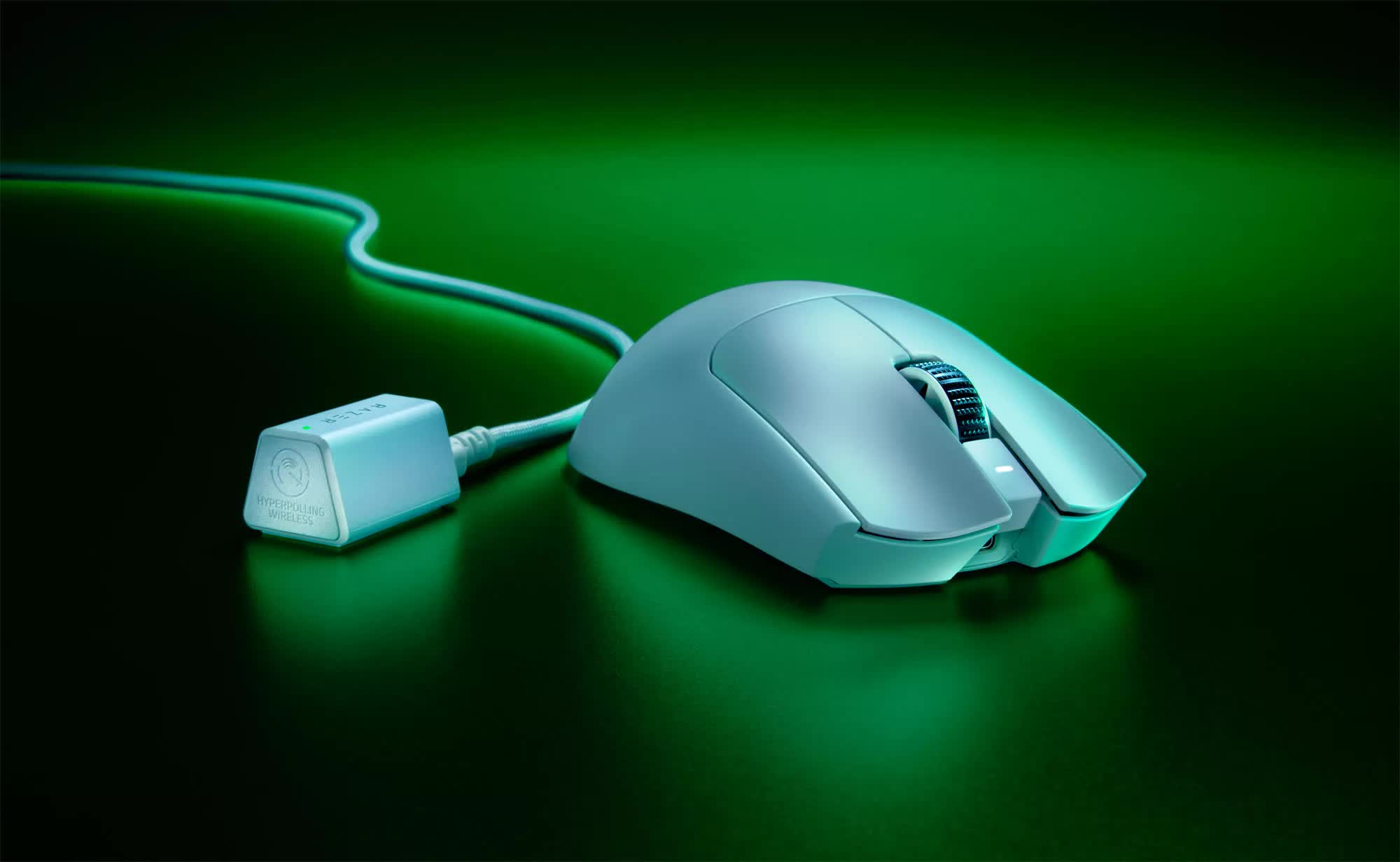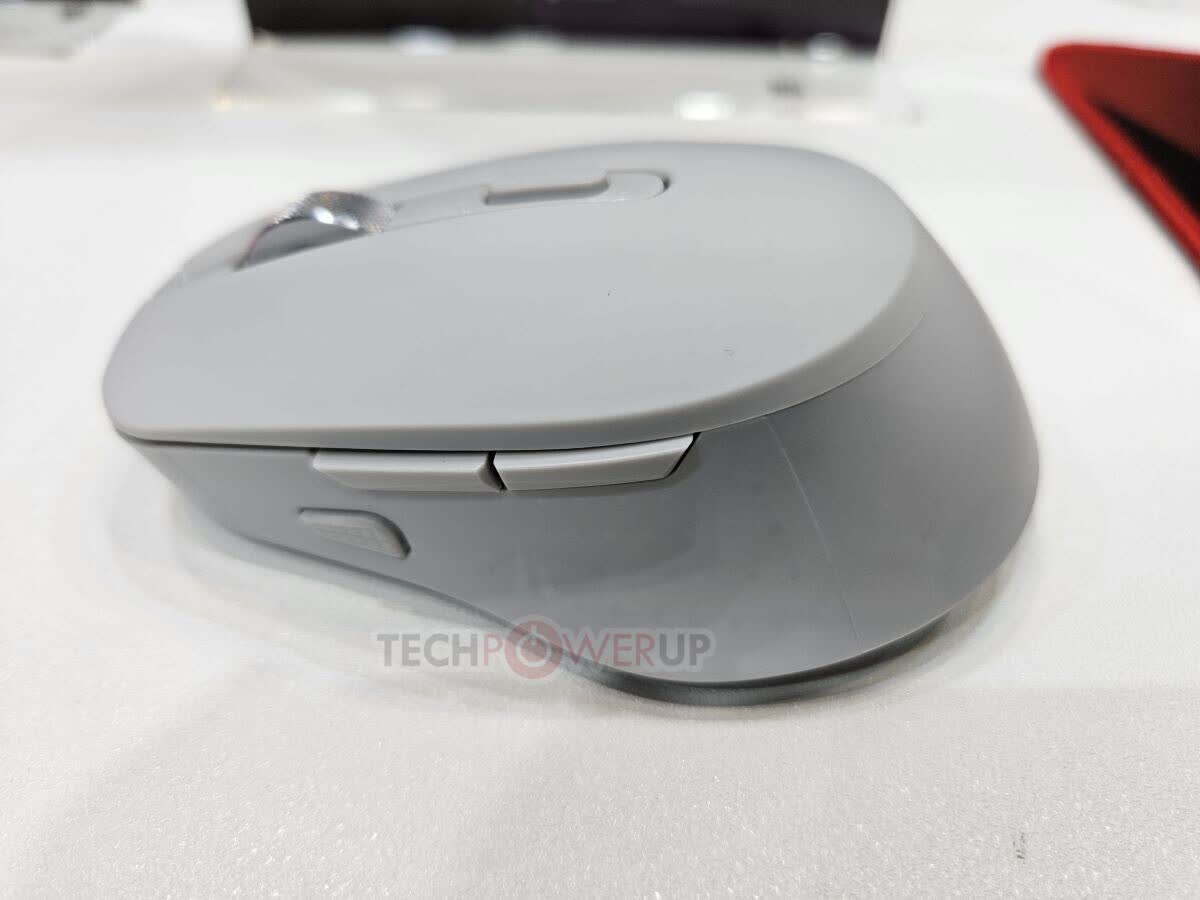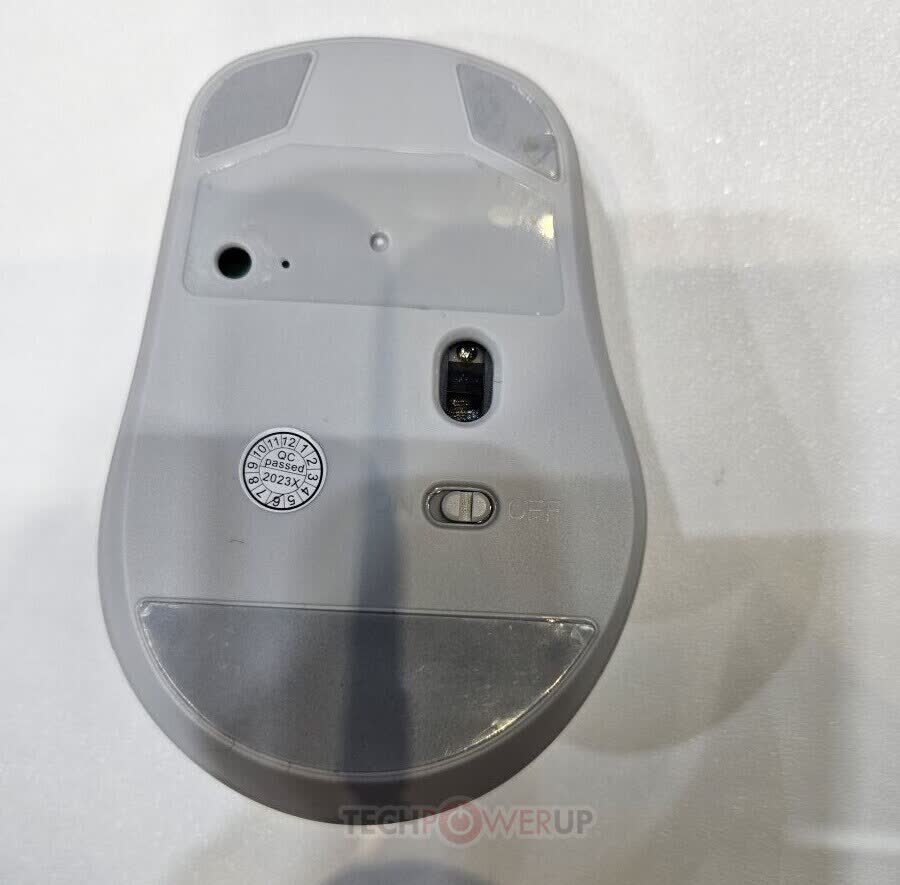In brief: If you're tired of constantly swapping out batteries on cheap mice, Taiwanese manufacturer I-Rocks might have the solution you've been waiting for. Their prototype wireless mouse ditches traditional batteries entirely, instead packing a supercapacitor that fully charges in just 5 minutes and provides up to a month of usage.

A mere 5-minute charge translates into potentially weeks without having to juice this device. And if you're in a rush, plugging it in for just 60 seconds nets you enough power to get through a full day's use. The mouse was unveiled at Computex 2024, as reported by TechPowerUp.
The key is in those supercapacitors, which can rapidly build up an electrostatic charge much faster than chemical batteries. They're also far lighter than battery packs and don't face the same air travel restrictions as lithium-ion cells. The capacitor in the mouse is rated for 100,000 recharge cycles, which is about a hundred times higher than lithium-ion-powered gaming mice.

So, why aren't we seeing this supercapacitor tech in products like smartphones? Well, their voltage drops steadily as they discharge, and they also suffer from relatively high passive power drain which makes them not-so-ideal for keeping your phone alive with standby time. But for a low-power peripheral like a mouse, I-Rocks' implementation seems to have cracked the code.

Besides this supercharged mouse, the company also showed off their M31R wireless model at the show, boasting an incredible 8,000Hz polling rate for ultra-responsive performance over both its wireless RF and wired USB connections (Bluetooth is a bit slower). With sensor resolutions already maxing out, the latest battleground for mouse superiority seems to be offering the snappiest inputs possible.
On the keyboard front, I-Rocks was pushing the envelope with a range of mechanical decks built around Hall effect keyswitches rather than traditional metal spring-based designs. These Hall effect switches use magnets to detect keypresses, potentially offering faster response and longer-lasting durability.
I-Rocks is promising to launch their supercapacitor-powered wireless mouse later in 2024, with matching keyboards using the same quick-charging tech also in the works.
While this mouse is impressive on its own, perhaps the future of batteries is rather a blend of sodium-ion and supercapacitor tech. Recent breakthroughs around high-energy sodium-ion batteries that can recharge in minutes suggest we may soon see devices that combine incredible battery life with near-instant charging times.
Image credit: TechPowerUp
This mouse ditches traditional batteries for supercapacitors, promises 5-minute charging